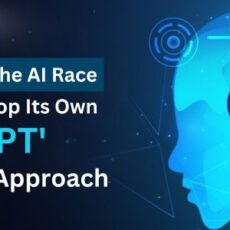Introduction
SrikantSree Ram, director of Amazon Fresh India, stood on a farm in Mahabaleshwar, a hill town in Maharashtra’s Satara district, watching as freshly picked white strawberries made their way to a collection centre nearby. A farmer told visitors that the strawberries are supplied exclusively to Amazon Fresh customers in Pune and Mumbai.
As Amazon Fresh, the e-commerce giant’s platform for daily grocery needs, expands to 170 Indian towns and cities, seasonal produce like Alphonso mangoes of Ratnagiri and onions from Nashik are being sourced directly from farmers. What ties the company’s services procurement to delivery together is a supply chain powered by artificial intelligence (AI) and machine learning (ML). GetMyIndia.com
AI is Reshaping E-commerce:
From delivering fresh produce and personalized recommendations to resolving queries in Indian languages. Firms are using AI to improve customer and seller experience, convert queries to sales, and streamline services.
Amazon has formed a team of agronomists who give advice on improving farm yields and quality. ML and computer vision algorithms streamline supply chain processes and identify defects in fruits and vegetables, reducing waste. It uses ML to give farmers information about their crops, including detecting infestations through its Kisan app. A farm product undergoes a four-step quality check at collection centers before being sent to processing facilities.
Revolutionizing the Fresh Produce Supply Chain with AI
One of the most impactful applications of AI in e-commerce in India is in the delivery of fresh produce. With an agricultural economy at the heart of the country, ensuring the freshness and quality of fruits and vegetables is crucial. Here’s where Machine Learning (ML) and computer vision algorithms come in.
Amazon’s Agricultural Innovation: Empowering Farmers with AI
Amazon, one of the largest e-commerce giants, has taken a proactive approach by forming a specialized team of agronomists focused on helping farmers improve farm yields and the overall quality of their produce. This team works with farmers across India, offering them advice on better farming practices, weather patterns, and crop management to ensure higher-quality harvests.
Additionally, ML algorithms are being used to streamline supply chain processes, enhancing everything from demand forecasting to logistics. This allows Amazon to make sure that fresh produce reaches consumers in the best condition possible. These algorithms identify defects in fruits and vegetables early on through the use of computer vision, thereby reducing waste by preventing damaged goods from entering the supply chain.
Optimizing Logistics and Delivery with AI
One of the biggest challenges in e-commerce in India is the logistics and delivery infrastructure. With varied geography, traffic congestion, and infrastructure disparities between urban and rural areas, managing efficient and timely deliveries is a complex task. AI plays a crucial role in solving this issue by optimizing delivery routes and predicting demand patterns.
AI-driven tools can even manage last-mile delivery by finding the best delivery partners, predicting potential delays, and offering real-time tracking, which is especially critical in a country where customers are often keen to know exactly when their orders will arrive.
AI and Personalization: The New Retail Imperative
- 77% of Indian Shoppers Prefer Tailored Recommendations: Consumers are increasingly drawn to retailers who use AI and machine learning to deliver personalized product suggestions.
- Over 52% of Indian Retailers Eye AI for Loss Prevention: Amid rising concerns over theft and safety, more than half of retailers plan to deploy AI-driven solutions within the next 1-3 years to safeguard their operations.
Retail decision-makers are increasingly investing in a suite of technologies, from advanced data storage and encryption to AI-powered prescriptive analytics, to address safety concerns and meet consumer expectations. Notably, while only 38% of retailers currently use AI-based prescriptive analytics for loss prevention, plans for adoption are on the rise globally and within the APAC region.
Empowering Associates and Enhancing Operational Efficiency
- Mobile Technology Empowers Associates: Nearly 90% of retail associates believe that mobile technology tools significantly enhance their ability to provide superior customer service. Consequently, 75% of global retailers plan to increase their technology investments in 2025.
- GenAI’s Role in Inventory Management: More than one-third of retailers (39% globally and 41% in APAC) believe that generative AI will revolutionize inventory management and demand forecasting. Automation of product locating and real-time inventory tracking through AI-powered solutions are expected to be major profitability drivers.
“Many retailers are laying the groundwork to build a modern store experience,” said Subramaniam Thiruppathi, Director of India Sub-Continent Business. “By investing in mobile and intelligent technologies that provide greater visibility and enable seamless communication, retailers can elevate the customer experience and ensure long-term success in a competitive market.”
A Call for Technological Transformation
The findings of this study serve as a call to action for retailers across India and the broader APAC region. To recover from the year-over-year decline in shopper satisfaction and to bridge the gap between consumer expectations and in-store realities, retailers are urged to:
- Leverage AI for Personalization and Loss Prevention: Implement cutting-edge AI solutions to tailor customer recommendations and monitor safety risks effectively.
- Invest in Mobile and Cloud Technologies: Equip retail associates with mobile tools to enhance real-time communication, task prioritization, and customer engagement.
- Enhance Inventory Management Systems: Utilize advanced analytics and AI-powered forecasting to maintain optimal inventory levels and prevent stockouts.
- Strengthen Third-Party Compliance: Ensure that external vendors and SaaS partners adhere to strict security and operational standards to support seamless retail operations.
Conclusion
AI is revolutionizing e-commerce in India by enhancing personalization, streamlining supply chains, and improving customer service. From optimizing logistics and fresh produce delivery to empowering farmers with real-time crop insights, AI is making e-commerce more efficient and inclusive. It enables businesses to offer tailored shopping experiences, break language barriers, and predict demand while reducing waste and improving quality. As AI continues to evolve, its role in reshaping India’s e-commerce landscape will only grow, offering new opportunities for both customers and businesses to thrive. The future of e-commerce in India is not just about transactions; it’s about creating smarter, more connected experiences.
Gmicapitals.com RaysVeda.com GetMyStartup.com LawCanal.com ABHAYRAY.COM ZinCob.com




